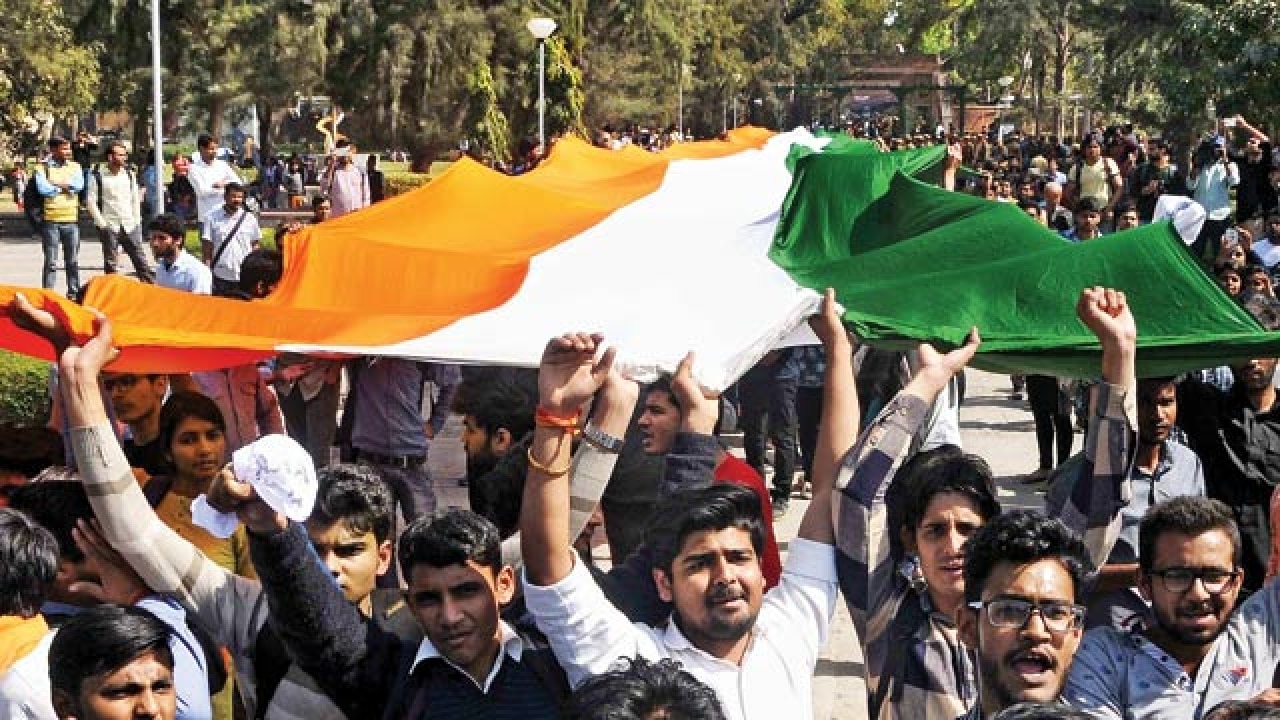
A fter a seminar on “Cultures of Protest” at Ramjas college, Delhi University has become a hotbed of debates. The repercussions of the Ramjas row don’t seem to be dying anytime soon. It has yet again managed to review the dichotomy between the extent of freedom of expression as prescribed by the Constitution, and as possessed and exercised by an individual. Occurrences as these put forth the question — what really happened to the world’s largest democracy? These events make apparent the shrinking level of tolerance in the country and are antithetical to the ideas laid down in the Preamble to the Indian Constitution. Are we really a nation based on “justice”, “equality”, “liberty”, and “fraternity”?
The nationwide clampdown on universities is evident. Freedom of expression has been curbed to the extent that any individual with disparate views is immediately labelled as nationalist/anti–national. The precursor to this is an outburst of information, impulsive actions, and a lack of thought and comprehension. We are living in a strictly polarised space, where one is either of the two extremes in a situation. Subsequently, there is no scope for existence in the “interstices”; one is either a “bhakt” or a “libtard”. The nation seems to be turning into a panopticon, the citizens of which are trapped into categories depending on their political allegiance. Voicing an opinion is a dangerous business, especially on social media, where one is trolled irrespective of the strength of the argument, where “visibility” is actually “a trap”.
Somehow, in this age of protests and counter-protests, the voice of reason seems non-existent and peaceful coexistence is a distant dream. So what can an individual do? What about the people who do not want to pick a side?
Not because they are afraid to do so, but because the existing ones are highly problematic. Does it mean that one should align with the ideology that is in some ways less problematic than the other? The answers to these questions will certainly be problematic and subjective. It is no more just a question of who is right or wrong but who defines the rights and the wrongs. It is the duty of society as a whole to provide its youth with an amicable environment for a harmonious exchange and perpetuation of knowledge. Civilisations do not evolve in isolation, but through an influx of newer ideas and perspectives. Refusal to see the bigger picture and the stubbornness towards the homogenisation of thought will only lead to the stagnation of knowledge, which, in turn, will lead to a stagnation of culture.
Send your edits to gennextedit@dnaindia.net